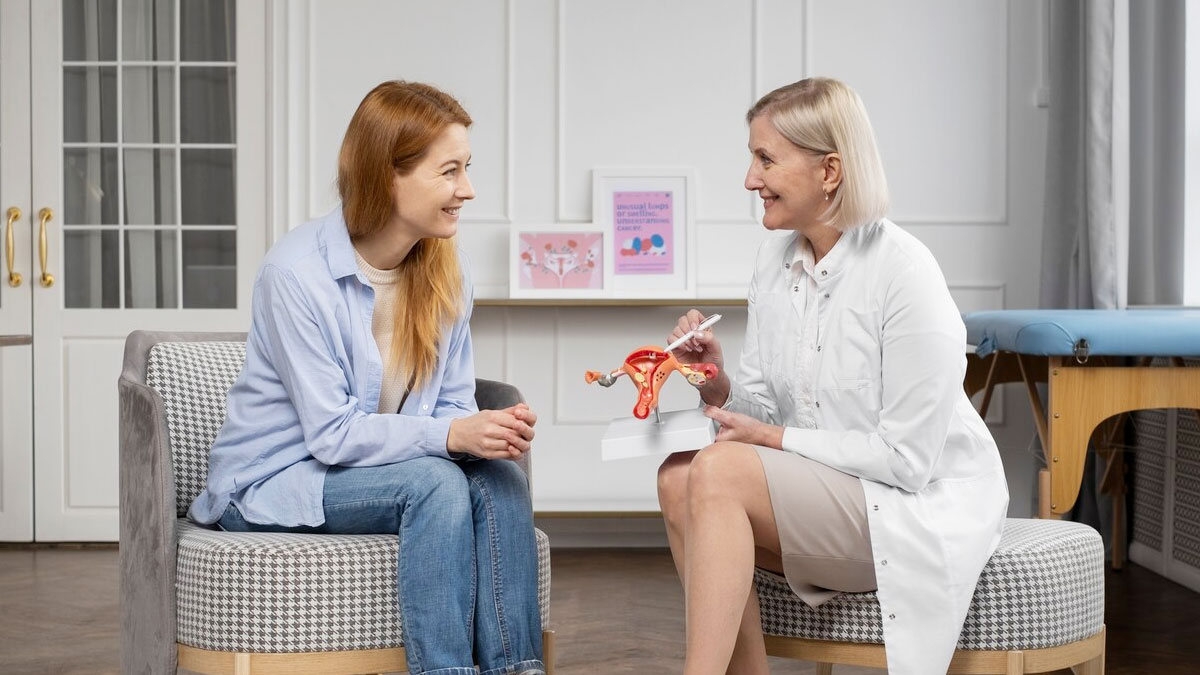Endometriosis is a chronic condition that affects millions of women worldwide, causing significant pain and affecting their quality of life. The search for effective pain relief is ongoing, and many sufferers are turning to CBD (Cannabidiol) as a potential solution. This article explores the benefits of CBD for managing endometriosis pain and how it might offer relief where traditional treatments fall short.
Understanding Endometriosis
Endometriosis occurs when tissue similar to the lining inside the uterus begins to grow outside the uterus, leading to pain, inflammation, and sometimes infertility. Common symptoms include severe menstrual cramps, chronic pelvic pain, pain during intercourse, and heavy menstrual bleeding. The impact on daily life can be profound, affecting physical health, emotional well-being, and overall quality of life.
Current treatments for endometriosis pain often include over-the-counter pain relievers, hormonal therapies, and in severe cases, surgical interventions. While these treatments can be effective, they also come with limitations and potential side effects. This has led many to seek alternative or complementary therapies, such as CBD, to help manage their symptoms.
What is CBD?
CBD, or Cannabidiol, is a natural compound found in the cannabis plant. Unlike THC (tetrahydrocannabinol), another well-known cannabinoid, CBD does not produce a “high.” Instead, it is praised for its potential therapeutic effects, including pain relief, anti-inflammatory properties, and anxiety reduction. As CBD gains popularity, it’s becoming more accessible in various forms, from oils and tinctures to capsules, edibles, and topicals.
The legal status of CBD varies by region, but it is generally legal in many places, provided it contains little to no THC. It’s crucial to ensure that any CBD product you use is high-quality and lab-tested for safety and efficacy.
How CBD Works for Pain Relief
To understand how CBD might help with endometriosis pain, it’s essential to know about the endocannabinoid system (ECS). The ECS is a complex cell-signaling system in our bodies that plays a role in regulating a range of functions, including pain, mood, appetite, and immune response. The body produces endocannabinoids, which bind to cannabinoid receptors to signal the ECS to take action.
CBD interacts with the ECS by influencing the activity of these receptors, potentially reducing pain and inflammation. While research is still ongoing, several studies suggest that CBD can be effective for managing chronic pain conditions.

Benefits of CBD for Endometriosis Pain
Pain Relief: CBD’s potential for pain relief is one of its most celebrated benefits. For endometriosis sufferers, this could mean a significant reduction in the debilitating pain that often accompanies the condition. Some studies have shown that CBD may inhibit pain pathways and reduce nerve pain, offering a dual approach to pain management.
Anti-Inflammatory Properties: Inflammation is a major component of endometriosis pain. CBD is known for its anti-inflammatory effects, which can help reduce the inflammation associated with endometriosis. By decreasing inflammation, CBD may not only alleviate pain but also prevent further damage to surrounding tissues.
Improvement in Quality of Life: Beyond pain relief, CBD has the potential to improve overall quality of life for those with endometriosis. Many women report that CBD helps reduce anxiety and improve sleep, both of which are often negatively impacted by chronic pain. Better sleep and lower stress levels can lead to an overall sense of well-being.
How to Use CBD for Endometriosis Pain
There are various ways to incorporate CBD into your pain management routine:
- CBD Oil: CBD oil tinctures are taken sublingually (under the tongue) for quick absorption. They allow for precise dosing and are versatile for daily use.
- Capsules and Edibles: CBD edibles provide a convenient and discreet way to take CBD. They offer long-lasting effects but take longer to kick in compared to oils.
- Topicals: CBD-infused creams and balms can be applied directly to areas of pain for localized relief. This is particularly useful for pelvic or lower back pain associated with endometriosis.
Finding the right dosage is crucial and can vary from person to person. It’s generally recommended to start with a low dose and gradually increase until you find the optimal amount that provides relief. Consulting with a healthcare provider who is knowledgeable about CBD is also advised to ensure safe and effective use.

Potential Side Effects and Risks
While CBD is generally well-tolerated, some people may experience side effects such as dry mouth, fatigue, and changes in appetite. More significant risks include potential interactions with other medications, so it’s essential to consult with a healthcare provider before starting CBD, especially if you are on other treatments.
Quality matters when it comes to CBD products. Always choose products from reputable brands that provide third-party lab testing results to ensure the product’s purity and potency.
Real-Life Experiences
Many women with endometriosis have turned to CBD and shared their positive experiences. For instance, Sarah, a 32-year-old from California, describes how CBD oil helped her manage her chronic pelvic pain when traditional medications failed. “I was skeptical at first, but after a few weeks of using CBD oil, I noticed a significant reduction in my pain levels. It also helped me sleep better, which made a big difference in my overall well-being.”
Case studies and testimonials highlight the potential of CBD as a complementary treatment for endometriosis pain. These real-life stories offer hope and encouragement for others considering CBD as part of their pain management strategy.
Conclusion
CBD offers a promising option for managing the pain associated with endometriosis. Its potential benefits include pain relief, anti-inflammatory effects, and overall improvement in quality of life. While more research is needed to fully understand its efficacy, the growing body of evidence and real-life experiences suggest that CBD could be a valuable tool for those struggling with endometriosis pain.
If you’re considering CBD, it’s essential to consult with a healthcare provider to determine if it’s right for you. Start with a reputable, lab-tested product and begin with a low dose, gradually adjusting as needed. By exploring CBD as part of a comprehensive pain management plan, you may find relief and improve your quality of life.
Take control of your health and wellness with the help of using CBD oil in Canada!
